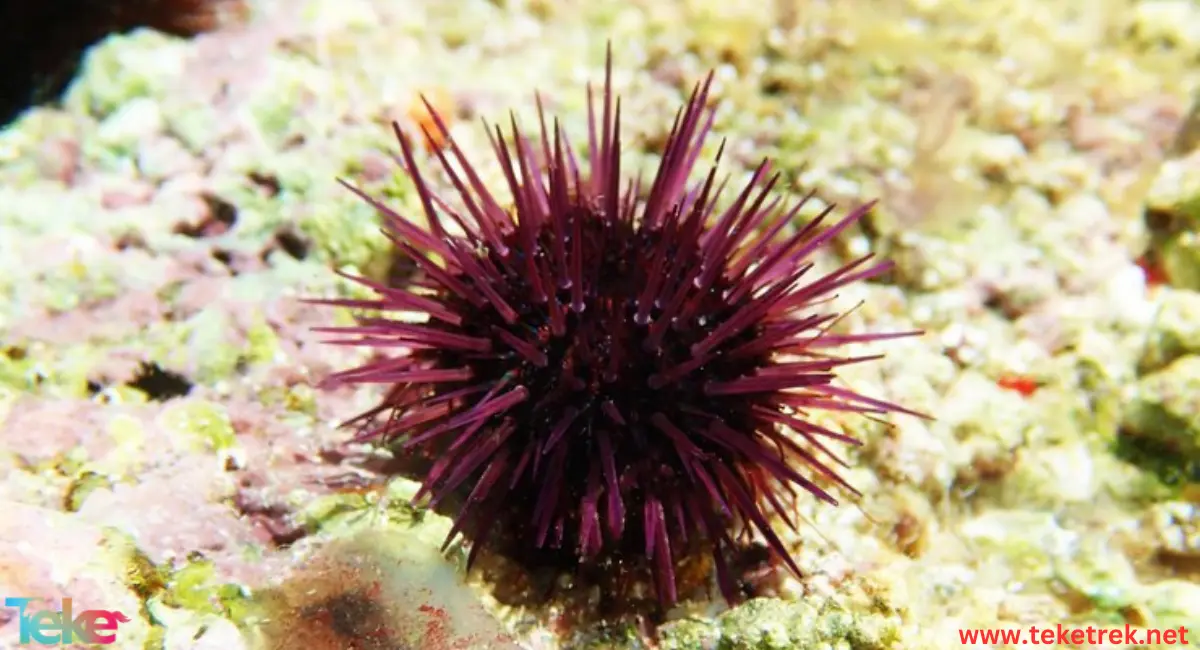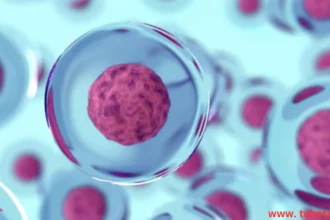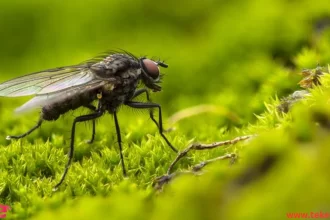Echinodermata takes its name from its exciting name, as its body is covered with sharp spines, and it plays an important role in the environment.
Below on the teketrek website, we talk more about it. We will present its definition, characteristics, nutrition, and importance.
Definition of echinoderms
Echinoderms are a group of marine invertebrate animals characterized by their sharp spines and spherical bodies. It belongs to the Echinoid Ea family and lives in the seas.
- Its spherical body is covered with sharp spines that protect it from enemies.
- Also, these animals feed on algae, seaweed, worms, and crustaceans.
- In addition, echinoderms belong to the phylum Echinoderm, which includes other species such as sea stars, copperheads, and spirochetes.
- It is characterized by its asymmetric body and its aquatic system for breathing and feeding.
- It is also characterized by its ability to regrow damaged parts of its body.
- Echinoderms play an essential role in the marine environment by cleaning the oceans and contributing to the balance of the marine system.

Characteristics of echinoderms
Echinoderms have many unique characteristics, including:
- Spherical body: Echinoderms are characterized by their spherical body that resembles a ball. Their color can also be varied between red, yellow, and black.
- Sharp thorns: These animals are characterized by sharp thorns that cover their entire body, and these thorns protect the animal from potential enemies.
- Diverse diet: Echinoderms feed on algae, seaweed, marine worms, and crustaceans.
- Special breathing system: Echinoderms breathe through tubes called fluid tubes, extending from their body to the outside to exchange gases.
- Ability to regenerate: Echinoderms have the ability to regrow parts of their bodies that they lose due to injury or damage.
- Their role in the environment: Echinoderms are an important part of the sea, as they contribute to cleaning the oceans of waste and maintain the marine balance.
Benefits of echinoderms
Echinoderms play an essential role in the marine environment through several benefits, including:
- Cleaning the environment
Sea echinoderms clean the oceans of excess algae and seaweed, which contributes to maintaining the balance of the ecosystem.
- Ecological balance
Echinoderms contribute to the balance of the marine system by regulating the number of marine organisms and algae, which helps maintain biodiversity.
- Use in medicine
Powdered echinoderm peels are used in some traditional treatments to treat some diseases, and they are considered to have anti-inflammatory and disease-fighting properties.
- Decoration and craft making
The body of echinoderms can be used in making decorations and crafts to add an aesthetic touch to products.

- Learning and Research
Echinoderms are used in scientific and educational research as a means of understanding biodiversity and its importance in the marine environment.
Echinoderm food
Echinoderms are carnivorous marine animals, and they feed on a variety of foods depending on the type of echinoderm and the environment in which they live, including:
- Small marine organisms
Some species of echinoderms feed on small invertebrates such as worms and crustaceans.
- Seaweed
Seaweed is the primary food for echinoderms, which they consume to obtain the energy needed to survive.
- Organic remains
Some species of echinoderms consume organic remains such as parts of dead animals and marine plants.
- Some fish and mollusks
Some species of echinoderms may eat small fish and small mollusks as a primary part of their diet.
FAQ
- Why do echinoderms move?
Echinoderms move to search for food, escape dangers, reproduce, and adapt to the environment.
- How many types of echinoderms are there?
There are about 1,250 species of echinoderms known so far, and this number may increase as new species are discovered.
- What type of structure do echinoderms have?
Echinoderms have a soft, non-rigid structure, consisting of an outer layer called the epidermis and an inner layer known as the epidermis.
- What type of reproduction do echinoderms have?
Echinodermata usually reproduce sexually, but some species can reproduce in other ways as well.
- What are echinoderms in biology?
Echinoderms are a phylum of marine animals that have spiny skin and a water vascular system.
- Do echinoderms have blood?
Echinoderms do not have blood, but they have a water vascular system that helps with circulation and waste removal.
- Do echinoderms have a backbone?
No, echinoderms do not have a backbone.
- What makes echinoderms unique?
Echinoderms are unique because they have a radial symmetry as adults, regenerate body parts, and possess tube feet for movement and feeding.
In short, echinoderms are marine invertebrate organisms that play an important role in the marine environment and deserve protection.






